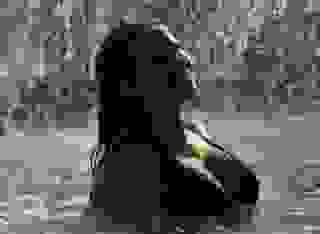- Romance
- Twister to Texas
Note: You can change font size, font face, and turn on dark mode by clicking the "A" icon tab in the Story Info Box.
You can temporarily switch back to a Classic Literotica® experience during our ongoing public Beta testing. Please consider leaving feedback on issues you experience or suggest improvements.
Click hereThe rumor in the mess line that day was the 59th Illinois Volunteer Infantry Regiment was moving out for home. Samuel smiled grimly. He'd heard the same thing since Lee surrendered in April. He'd heard then that the Army had been ordered to discharge as many men as possible as soon as possible. Samuel believed he would be discharged, just not that it would happen immediately as some accounts stated. Over the months, he'd come to the realization that for the 59th at least, immediately didn't mean the same thing to the Army as it meant to everybody else.
That realization wasn't really new. It was just a continuance started by what he'd experienced since he'd volunteered at the St. Louis Arsenal in September of 1861. The Union was desperate for troops to fight the Confederacy, yet just getting him sworn in, supplied with uniforms, a rifle, and all the other things an infantry soldier carried had taken a week.
Life over the past four years had been boring weeks of waiting in dirty, smelly encampments interspersed by hours or days of gun smoke, flying bullets and cannon balls, and most of all, sheer terror.
The 59th was expecting a speedy return to Illinois via the railroads. Instead they were marched from Nashville to the Tennessee River and loaded onto riverboats. The riverboats slowly made their way to Cairo, Illinois. At Cairo, the anxious soldiers expected to turn north up the Mississippi and home, but the Union was not done with them yet. Instead, they were loaded on other boats going south to New Orleans, Louisiana.
From New Orleans, they were ferried by ship across the Gulf of Mexico to the port of Indanola, Texas. From Indianola, they were moved to San Antonio, and then to New Braunfels where they had duty, on and off, until December.
Much to Samuel's surprise, this rumor proved to be true. The regiment was marched back to Indanola. Two days later, they'd been loaded onto steamboats and taken up the Mississippi to Cairo, Illinois and then by train to Camp Butler in Springfield, Illinois. On December 7th, the regiment was mustered out, and on December 8th were paid and discharged.
Samuel returned home just in time for Christmas. His mother had cried on his shoulder for half an hour while she held him tight to her breast. His father hadn't shed any tears, but his voice sounded a little choked.
There was little to do on a farm in winter except care for the livestock and split firewood to feed the insatiable appetite of the fireplace and cook stove. Samuel took over both of these tasks. His father was often stricken with bouts of rheumatism because of the cold Illinois winters, and Samuel wanted to spare him the pain of that work.
He also listened to his mother's subtle hints about wanting grandchildren, though Samuel wasn't particularly attracted to any of the young girls who attended the little church in town. Before the war, he'd had a favorite or two. Now, they all seemed so immature and silly to him. They'd collapse into titters at anything, and seemed to spend all their time talking about which girl was being courted by which boy.
His own thoughts during the day were about what lay ahead for him. Though he'd assumed most of the work on the farm, after two months he began to be unsettled. The past four years had been boring, but also filled with excitement and anticipation. He wasn't sure he could ever be happy with the quiet life of plowing, planting, weeding, and harvesting that would occupy most of the daylight hours through spring, summer, and fall. Winters would be the same as what he was then living, routine tasks that interrupted the long hours of doing nothing.
By the time the maple and oak trees in his parent's front yard began sprouting buds, Samuel knew he could never be a farmer again. Already the routine of caring for the animals was becoming a task he dreaded even though it did space out the hours of idle time. It seemed so pointless to him.
Every morning and evening, he forked piles of hay from the stack in the mow in the barn into the racks in the stalls. He'd then go into the stalls and clean out the manure dropped by the horses and cattle. That manure and the straw bedding had to be carried out to the pile in back of the barn to be saved until it could be spread on the fields before plowing them. After cleaning the stalls, he forked new straw into them. It never ended and would never end until he died.
If not farming, what course would he steer through life? Samuel had been taught how to farm since he could remember. He'd followed his father through the fields as the plow sliced furrows into the soil. He'd followed his father as he planted the seed that would grow into corn, oats, and wheat. As soon as he'd grown strong enough, he helped shuck the ears of corn from the stalks and throw them into the horse drawn wagon that followed them through the field. Samuel had never learned any other skills other than those required to maintain the equipment used on the farm.
Living in the countryside meant Samuel and his parents got all the news about happenings after the church service in town on Sunday. That Sunday, he listened as one of the members told of the letter he'd received from his brother.
The brother had moved to Kansas before the war and had built a farm. During the war, there had been little trouble with the Indians in the area. After the war, according to the letter, more and more settlers had moved there, and the Indians had begun raiding the farms to steal livestock. A few farmers had been killed, but that was about to end. A "privet general" from the Civil War, Lieutenant Colonel George Armstrong Custer, and been given command of the 7th US Cavalry. Though the 7th Cavalry had been greatly reduced in size after the war, they had been ordered into the area to force the Indians onto a reservation and end the raids. According to the letter, they were looking for recruits to refill the ranks.
That Sunday night, Samuel considered his options. The only skills he possessed other than farming was soldiering. He could stay on the farm, an option he knew he would hate, or he could join the Army again. His parents wouldn't like it if he left home. His father needed him. That bothered Samuel, but he finally decided he needed to look after himself. His uncle had helped his father during the war and would continue to do so if Samuel wasn't there.
On Monday, Samuel sat down with his parents and explained his decision. His mother wept, but said he should do what was best for him. His father said he was proud. Both knew it was likely they wouldn't see him again.
On Tuesday morning, Samuel said goodbye to his parents and walked to town with what remained of his Army pay in a small bag tied inside his shirt. In the knapsack the Army had let him keep were his clothes, a little food, and other things he would need. He purchased a train ticket to St. Louis, Missouri.
Samuel arrived at Ft. Riley, Kansas a week later, and went to find out where he could enlist. By the end of the next day, he was Private Samuel Kerner of the 19th Kansas, 7th Cavalry and had been issued uniforms, a new knapsack with bedroll, a.45 caliber Colt single-action revolver and a Springfield.44/55 trapdoor rifle. By the end of the week, he'd been issued a horse, a bay gelding named Sampson, and a McClellan saddle with bridle.
Samuel felt comfortable again. His days began early with feeding, grooming and caring for Sampson. The standing order in the cavalry was if the horse wasn't in prime condition the trooper walked, so horses were looked after before anything else. After that came breakfast followed by drill or horsemanship training. Afternoons might be more drill, or marksmanship training with both the revolver and rifle, and sometimes both. Evenings were caring for Sampson again, and then supper.
His days went by quickly, and Samuel felt more at ease than since he'd left the war. The meals were not especially good, but they were better than a lot of what he'd eaten during the war. He slept on a cot in a tent instead of the ground as he had during the campaigns of the Civil War.
As the months went by, the 7th saw some minor actions. There were raids by the Cheyenne on some of the outlying farms. When Lieutenant Colonel Custer learned of a raid, he would send out a company to find and kill the Indians. Samuel had been in a few skirmishes and had fired both his revolver and the Springfield, but as the Indians were riding away at the time, could not confirm if his bullets hit any of his targets.
That was usually how it went. The company, led by one of the Indian scouts, would track the Indians. When they found them, instead of turning to fight, as had the Confederate soldiers during the war, the Indians would ride away as fast as their ponies would run. Often the group of fleeing Indians would separate into three or four groups, all riding in different directions.
Samuel was confused at first as to why the Company didn't follow at least one group and wipe them out. The grizzled First Sergeant spat a glob of tobacco spit on the ground and then frowned.
"The Cap'n knows better. Lost a whole company that way a few months back. Them Indian's ain't split up like it looks. They'll let one bunch lead the troops away. The others'll circle back and follow and once the column is in some place they can't turn around, them Indians will all attack. No, it's better to let them go. We'll get 'em one o' these days."
That day came in November of 1868 at an Indian winter encampment on the Washita River in Oklahoma. As it was explained to the troops, the 7th had received orders to track the group of hostile Indians until finding their winter camp and then kill as many warriors as possible. This was to teach the Indians they had to live on the reservations as ordered.
Lieutenant Colonel Custer's plan was to attack the encampment from three sides, kill all the warriors, and take the women and children hostage. The hostages would be used to ensure a safe departure from the battlefield if they hadn't killed all the warriors. Indians valued their families and would not attack if there was a danger of injuring or killing women and children.
On the morning of the attack, Samuel leaned over Sampson's neck with his Colt revolver in his outstretched hand. The charge order was given, and the three companies of men raced through the sleeping village firing at any Indian they saw as well as into the tipis.
Samuel was careful to not shoot at women and children. The orders were to leave them unless they attacked one of the troopers. They would be herded together once the battle was over. As he rode through the tipi's arranged in neat rows, he saw the other men in the companies weren't being as selective.
Samuel was sickened by the sight of women and children shot in the back as they attempted to flee the carnage. The soldiers on both sides of the war could be cruel and inhumane in their treatment of the dead and dying, but women and children were non-combatants and were nearly always left alone by both sides. He watched in horror as some of the troopers shot wounded women and children again to end their lives.
The three columns quickly took control of the village, assumed defensive positions, and then began ransacking it. They rounded up every woman and child still alive and placed them under guard, then began burning everything in the encampment that would burn. After that, the troopers rode through the herd of Indian ponies and killed all of them except for the number required to transport the prisoners.
Only one group of troops pursued the warriors who had managed to reach their ponies and ride from the village. That group was still in pursuit when Lieutenant Colonel Custer ordered the companies to form a column with the women and children in the center. On the horizon, Samuel could see Indians on horseback as if preparing to attack. The columns were ordered to advance toward those Indians. Shortly after the column began to move forward, the Indians vanished behind the hills just as Lieutenant Custer had planned. The 7th was ordered to turn around and ride back to the supply train.
The detachment of troops that had pursued the Indians did not return that day or the next. Samuel's company was then ordered to search until they found them in order to recover any survivors and bodies. He was struck dumb when they found the twenty men. All had been stripped of clothing down to their union suits. All had multiple arrows sticking from their bodies or multiple bullet wounds, their scalps had been removed, and their bodies had been mutilated. Most had knife slashes on their bellies and arms and legs. Some had even been castrated.
Once back in the 7th Cavalry encampment, Samuel listened to the men boast of how many they'd killed, and the vows to kill more to avenge the twenty who had foolishly pursued the fleeing Indians. He felt no pride in what the 7th had done. The 7th had lost twenty one men killed and four wounded. They had killed a few warriors, about twenty or so the Indian scouts said, but many of those killed were men Samuel thought were probably too old to fight. The total of women and children was even more saddening to Samuel. They had captured only fifty three out of over a hundred present in the encampment. The rest lay dead amongst the smoldering embers of the tipis.
Samuel could not excuse the desecration of the corpses of the twenty he'd helped find, but he could understand. As had sometimes happened during the war, an atrocity on one side caused a like or worse atrocity on the other. The only thought that mitigated his shame was that he had not killed any women or children.
The battle at the Washita River had the effect desired. The Indian raids in that part of the country mostly stopped, and the remaining Indians moved to the reservation. The 7th remained in encampment and fought no other major battles that year. Army life became as it was before the battle -- caring for the horses and drill.
In the spring of the next year, Samuel's enlistment was up and the conduct of the soldiers of the 7th Cavalry had sickened him against remaining one of them. Samuel didn't drink whiskey, didn't gamble, and didn't use the services of the "soiled doves" in town, so he had saved most of his pay over the years. He walked away from the 7th Cavalry with two hundred and fifty dollars in the pouch tied inside his shirt and made his way to the town surrounding Ft. Riley. There he purchased a yellow dun gelding named Dusty, a saddle and bridle, a Winchester 1866 repeating rifle and a Colt single action revolver identical to the one he'd carried in the 7th. After purchasing five hundred rounds for each firearm, a side of bacon, ten pounds of corn meal, five pounds of coffee, two pounds of salt and a frying pan, coffee pot and cup, Samuel mounted Dusty and rode south. He had no idea where he was going to end up.
Atsila had walked for hours and was hungry and thirsty. The village had given her nothing except the clothes she wore when they cast her out. She had understood the risk when she began to entice Chayton, but had thought herself smart enough no one would find out. In her mind, doing so was necessary.
Several months had passed since their wedding night and she was not yet with child. The Medicine Man had given Atsila and Anahu, her husband, medicine and said his chants, and had finally determined the spirits did not wish her to bear children. His explanation was her name. Atsila meant "fire", and the Cherokee believed fire to be the intermediary between earth and the Sun God. The Sun God did not want this special person to be burdened by children.
Atsila desperately wanted to suckle a child at her breast, and secretly did not believe the Medicine Man. She believed the fault lay with Anahu, for he had been injured as a child and his seed did not flow as the other women related their husband's did. She would find another man, a man of a different clan than she to avoid angering the spirits and lay with him in hopes of becoming pregnant. If she did, she would praise the healing powers of the Medicine Man and everyone would believe that to be the truth.
Had it not been for the suspicions of her husband such might have been the case, but Atsila did not see the small, dark red spot Chayton had left on her left breast. Her husband knew such a mark could only be left by another mouth, for he had given Atsila the same marks himself. He also knew he had not done anything to cause such a spot in the past several days because he had been away hunting with the other men of the village. Only Chayton, husband of Nieti, had remained in the village, complaining of an ankle made too painful to walk. Anahu said nothing to Atsila. Instead, he spoke to her brother.
Atsila's brother had been outraged at the accusation, but listened to Anahu, for Anahu was known to be an honest and honorable man. At Anahu's request, Atsila's brother agreed to follow Chayton if he left the village.
They were discovered entwined on a blanket in a thicket one hill over from the village. Atsila's brother surprised them and after they separated, pounced on Chayton while Atsila ran back to the village.
Her brother returned some time later and explained Chayton had been so shamed he had taken his own life by hanging himself from a tree. Atsila suspected her brother had killed him, but as she was now viewed with shame, her brother's account would be accepted as the truth. The actions of Atsila's mother and the rest of the village were dictated by their beliefs.
According to Atsila's brother, Chayton had confessed to agreeing to the liaison when Atsila proposed it, but was now sorry for doing so. Chayton was buried without the usual funeral rites so that his spirit would wander and never go to the Happy Land. To the village, depriving his spirit of a comfortable afterlife was a fitting punishment.
Atsila's punishment was perhaps less severe, but designed to yield the same result. All her possessions except the clothes she wore were burned while she watched, and she was then cast out of the village. She would be left to fend for herself without shoes or even a knife with which to obtain food or to defend herself. It was likely she would die somewhere and never be found again. The coyotes and buzzards would eat her remains and her spirit would endure eternity in the dark world below.
Atsila was a strong woman, and had accepted the punishment without comment, for it was the punishment dictated by the beliefs of the Cherokee. She knew the ways of the prairie and the wooded areas just as did all the men and women of the village. She was confident she could find food and shelter somehow and she would survive.
After resting for a few minutes, Atsila began walking again. In the distance she saw willow trees. Willows only grew near water. Willows meant water and water might mean food.
She was half way to the willows when she looked at the sky and saw the gathering dark clouds. Soon, the sky would open up and the oncoming heavy rain would soak her to the skin. She looked for some place to weather the storm but found only a few trees off in the distance. She quickly covered the distance and then crouched at the foot of the largest. She would still get wet, but the canopy of leaves overhead would offer some protection.
As she watched the coming storm from beneath her tree, Atsila saw a disturbance in the clouds. The disturbance quickly became an enormous swirling snake of wind that reached from the clouds to the earth, and immediately after it touched down, she felt the wind increase in strength.
She was spellbound as she watched the swirling column meander over the countryside, and gasped when it drew near. The thing seemed to span her entire view and she could see whole trees trapped in the spinning column. This was the u-ge-da-li-yv, the swirling wind that would level trees and homes as easily and completely as she would sweep a leaf from her arm. Every year a few had passed by her village but had done little damage. This one was so large it could have covered all the homes in her village.








